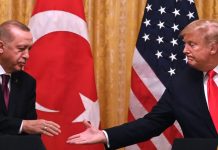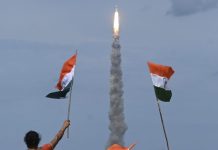With Pakistan’s Covid-19 cases crossing the half-a-million mark, the country is facing an acute shortage of vaccines to curb the spread of the virus. What is the chance that India will step in to rescue the country from the crisis and supply it with the vaccines as it did with its other neighbors?
Pakistan received around 500,000 Covid-19 vaccines as a gift from China via a special Pakistan Air Force (PAF) aircraft on Monday (February 1).
This first batch will be used to vaccinate the frontline healthcare workers in Pakistan. The registration process of citizens over 65 years would start in the next 10 to 15 days, the Dawn quoted a senior Pakistan Minister as saying.
Pakistan has also secured around 1.2 million doses from China’s Sinopharm, however, those numbers are hardly sufficient for a nation with a population of 216 million.
The country is due to receive 17 million doses of AstraZeneca’s coronavirus vaccine in 2021, about 6 million of which are expected to arrive by March, with the remaining batches arriving in the second quarter of the year.
Although the country has turned towards many different sources to make up for the shortfall, the planned vaccine supply will fail to make a dent in the country’s overall requirement.
The solution could be Pakistan’s next-door neighbor – India, which has already begun the world’s largest vaccination program in mid-January. The country has championed the cause of what’s called the ‘vaccine diplomacy’, being the producer of 60 percent of the vaccines globally.
الحمد اللہ ہمیں سینوفرم ویکسین کا پہلا بیچ ملا ہے! اس کے لئے انتھک محنت کرنے والے ہر شخص کا شکر گزار ہوں۔ COVID کا مقابلہ کرنے میں NCOC اور صوبوں نے اہم کردار ادا کیا۔ میں اپنے فرنٹ لائن ہیلتھ کیئر ورکرز کو ان کی کاوشوں کے لئے سلام پیش کرتا ہوں۔ویکسین سب سے پہلے انہیں لگے گی۔ pic.twitter.com/zfIdwF1GqN
— Faisal Sultan (@fslsltn) February 1, 2021
India has already started shipping millions of doses to all of its neighbors, except Pakistan. The two countries have been at loggerheads for decades now, and with the relations deteriorating after the Balakot incident in February 2019, there’s less chance the two countries may be cooperating on the Covid-19 vaccine sharing.
However, experts say that may not be the case since Pakistan is unlikely to make up for its shortfall in the number of vaccines in a short time. It may have little choice, but to turn to India for assistance.
Despite the rising tensions, the two countries have engaged in pharmaceutical trade, which has been stable so far. The pharma imports from India to Pakistan are estimated to be worth $62m in 2018. The medicines sold in Pakistan contain 60-70% of active ingredients imported from India.
BBC quoted Usman Ghani of Sindh Medical Stores, a leading Karachi-based importer of vaccines, who said that almost 90% of vaccines administered in Pakistan come from India. According to Ghani, Indian vaccines are “world-class, affordable and shipping is easy”.
The vaccines are mainly distributed through the country’s state-funded immunization program, which targets 14 million new-borns and pregnant women every year. Ghani expressed hope, saying Pakistan will get vaccines from India in the near future.
“India already has got so many vaccine orders from all over the world. We have cordial relations with vaccine makers across the border. We will try our best to get supplies, but it will take time,” he adds.
Happy to share that in addition to the 500,000 doses of Sinopharm, almost 7 million does of AstraZeneca to be made available in Q1 and given to the public free of cost! Pakistan’s vaccine drive starts next week, beginning with frontline healthcare workers. pic.twitter.com/6nJACx9aL7
— Faisal Sultan (@fslsltn) January 30, 2021
When asked whether there had been a request from Pakistan for supplying vaccines, an Indian foreign ministry spokesman recently said he was not “aware of any request for India-made vaccines” from the country. “We will harm ourselves if we don’t cooperate on vaccines,” Ghani told BBC.
India sent free early doses to countries such as Bhutan, the Maldives, Bangladesh, Nepal, Myanmar, Seychelles, Sri Lanka, and Bahrain. The country also started commercial supplies to Brazil and Morocco. There are additional requests from many countries, urging India to soften export regulations and provide vaccines at government-facilitated affordable prices.
The maker of Covishield, the Serum Institute of India, which is the world’s largest vaccine maker, plans to supply up to 200 million Covid-19 vaccines to low and middle-income countries before the end of this year. According to the company, more than 20 countries in Asia, Africa, and Europe have expressed interest in its vaccine.
“There’s huge international demand for our vaccines,” Foreign Secretary Harsh Vardhan Shringla told Bloomberg TV recently.
India is seen to have outmaneuvered even China through its vaccine diplomacy, reaching the neighboring nations before the latter with free vaccine promises. India’s aggressive outreach has undermined China’s efforts to extend its own geopolitical ambitions.
Pakistan, too, may not wait for Chinese vaccines as its Covid-19 numbers cross half a million cases and threaten to worsen the crisis in the country. The country’s leadership is looking at all options, and may not look at political differences or rivalries in such time, say the experts.




